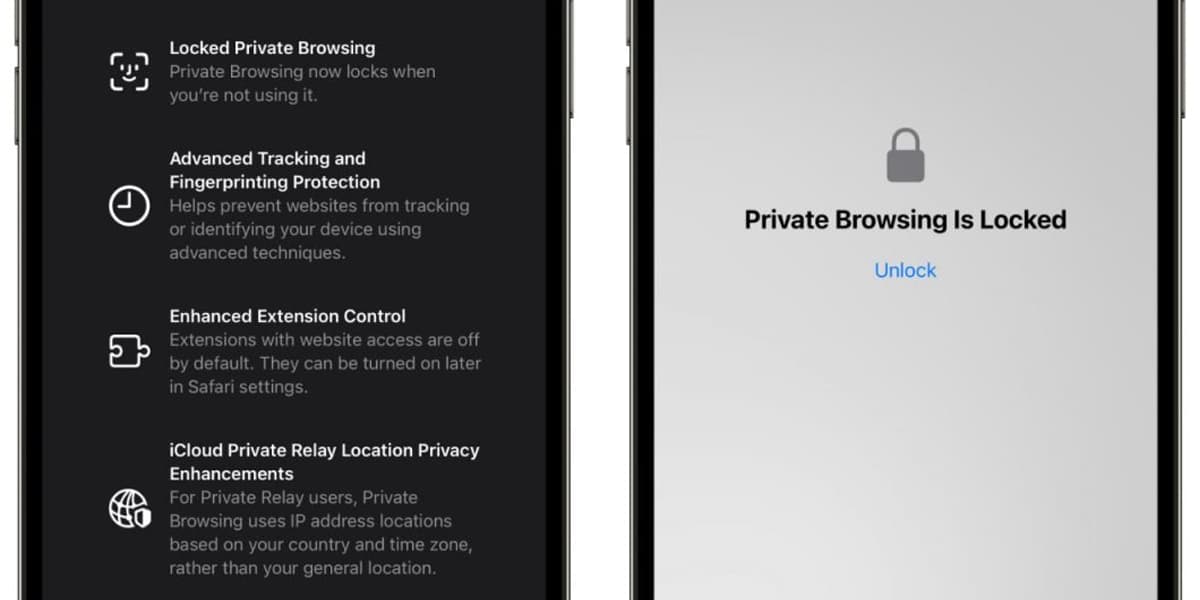
Apple yesterday introduced iOS 17 and iPadOS 17, the big updates that will arrive in autumn to our devices. Although throughout the presentation it seemed that they were going to be watered-down updates, the news is happening one after another in the beta for developers. One of the novelties has to do with the Safari private browsing. With iOS 17 to access this private browsing it is necessary to access through Face ID, that protects the windows that we have open at that moment.
Lock your private browsing in Safari with Face ID
La private browsing is that option within Safari that allows without storing data on our device and without leaving a record in our history. It is accessed from the lower menu of the application and we can always leave windows and tabs open, regardless of whether we are going to navigate in 'normal' mode.
All the what's new in iOS 17 in private browsing there are several. First of all, your access has been protected with Face ID, now when we try to access we will have to put our face and unlock the content to access it. The truth is that, at first glance, this function seems interesting. However, it can be tedious to unlock this content continuously, we will see if Apple ends up removing the option with the passage of the betas.
In addition, new anti-tracking tools have been added to prevent us from leaving content on the websites we visit and from being able to track us. As reported as you enter for the first time using iOS 17, it is also disable extensions by default in private browsing, although they can be activated by default from the iOS Settings. Finally, they claim that there are improvements to iCloud Private Relay which, remember, allowed us to hide our real IP address by masking it in a network of proxies created by Apple to protect our security on the web.
